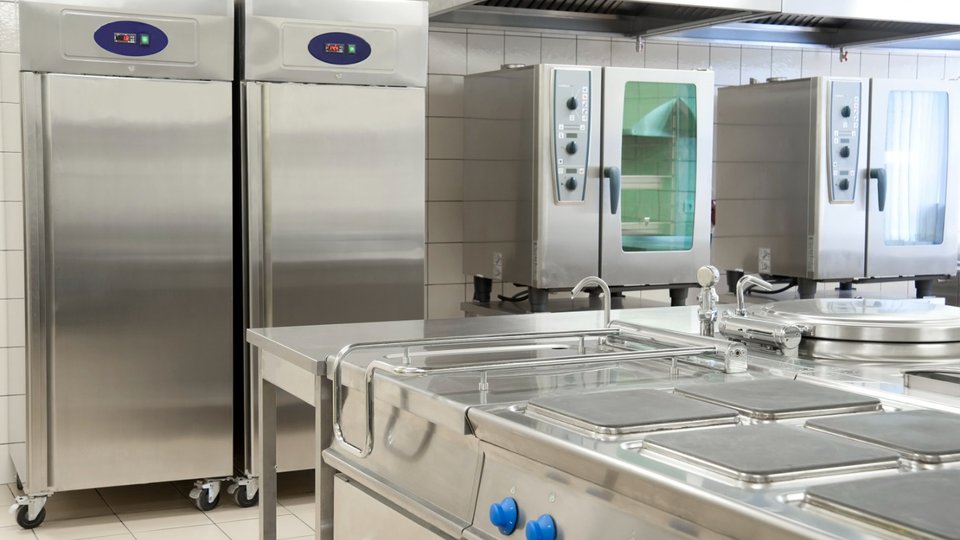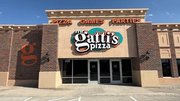Operations
Avoid these mistakes when buying commercial kitchen equipment
Kitchen equipment is costly. Making such a long-term investment means proper planning. Use these tips to help avoid the most common mistakes.

December 15, 2021 by Damon Shrauner — Senior Sales Consultant, chefbuyer.com
Equipment in the commercial kitchen not only serves to help you provide food to your customers but is also a long-term investment that factors into your monthly costs and returns. Picking the right kind of equipment is integral to setting up and running a successful & profitable food business. Since these pieces of machinery require regular maintenance, upkeep, and timely modifications, it's important to delve deep into the matter of purchasing the right kind of equipment for your establishment. Read on as we discuss the mistakes you need to avoid, and the key factors to consider before you put your money in kitchen equipment for your restaurant.
Here are some common mistakes to avoid when you're planning on buying new equipment for your kitchen:
Lack of adequate research
Kitchen machinery involves several technicalities and as a buyer, you should go through the various attributes of each piece of commercial kitchen equipment you intend on purchasing. A lack of research is marked by either the unawareness of one's establishment's requirements or insufficient knowledge of the equipment purchased. This can lead to losses in both the short and long term.
A sole focus on pricing
Allowing just the price to determine your purchasing decisions can cost you far more than the investment itself. While pricing is indeed important, foregoing quality and opting for substandard machinery can have serious implications. If money is short, try exploring refurbished equipment options from top-rated manufacturers.
Ignoring energy-efficiency
Commercial models of kitchen appliances end up consuming several times more energy when compared to their domestic counterparts. Be sure to check the Energy Star ratings of the equipment you wish to purchase. A piece of machinery rated poorly will result in high power consumption and lead to exorbitant utility bills.
Choosing inappropriate equipment sizes
It is essential that you have a robust plan when you are out to shop for commercial kitchen appliances. Having a clear picture of the kitchen floor plan and space available aids in mindful shopping. Several business owners end up purchasing kitchen equipment too large or too small for their establishments and get tied down to a liability instead of a solution.
Not understanding warranties
Every piece of equipment in a commercial kitchen works for long periods at a stretch and is bound to give in to the daily wear and tear at some point. Warranties at the time of purchase ensure maintenance and refurbishment costs are covered for your appliance. However, ignoring the terms mentioned in the warranty agreements, or failing to renew them will end up as an added expense on your balance sheet.
Failing to check delivered equipment thoroughly
Since commercial models of kitchen equipment cost considerable amounts of money, instituting a comprehensive checking protocol upon delivery is imperative. Failing to notice the damage during delivery will create challenges for you to return the product at a future date.
Some of the most essential factors to consider before you set out on choosing new commercial kitchen equipment for your establishment are:
Setting an affordable budget
It's essential to set a budget before you procure new equipment. Financial prudence is integral to running a profitable commercial kitchen. Try to aim for products priced in the middle and above-average price range.
Equipment quality
Quality determines the performance, durability, and lifespan of machinery. Good quality is indicated by long-lasting products that have minimal technical downtimes. High-quality products also tend to be priced higher, so be sure to buy the best quality you can afford.
Available space
Equipment dimensions are important factors to be taken into account before purchase. You can cross-reference the size with your kitchen's floor plan or the space available to you so that you can ensure you invest in equipment that fits.
Equipment that fits your needs
While a bistro owner might ponder over the pros and cons of a blender vs. processor, a pizzeria manager might consider the advantages of a deck-type oven over a standard convection unit. Each establishment has its own equipment needs, ensure that you are aware of them.
Design and style
It's important to factor in the design and style of both your kitchen and the equipment you use. These attributes are important when you're looking to create a comfortable work environment for your staff. A kitchen based on the ideal principles of design promotes productivity and the maintenance of health standards.
Buying commercial kitchen equipment is a process that requires several aspects to be considered before you arrive at a decision. Ensure you indulge in proper research and communicate with your dealer to get the best possible machinery for your kitchen. Since commercial kitchens require equipment that is capital intensive, bad decisions can end up affecting your profits for a long period of time.
 ChatGPT
ChatGPT Grok
Grok Perplexity
Perplexity Claude
Claude








